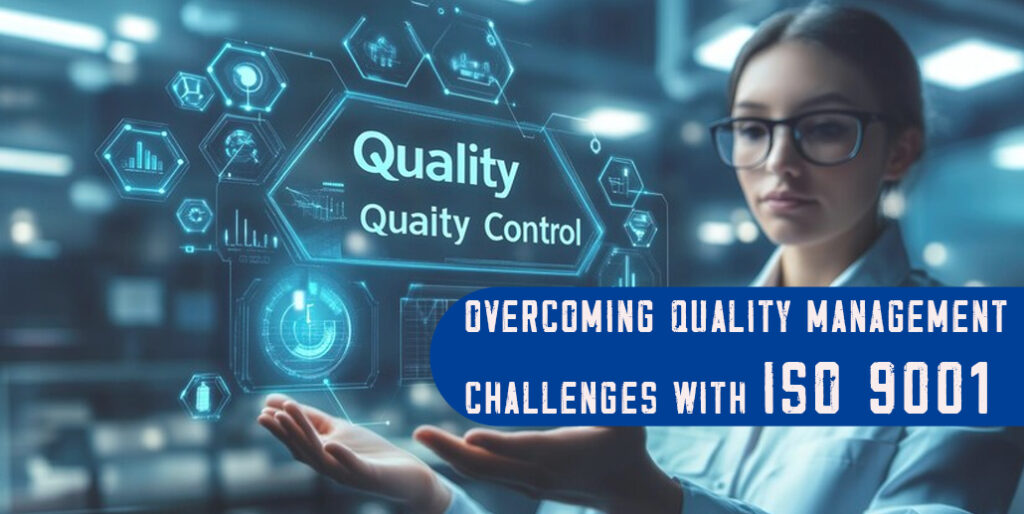
The digital transformation has revolutionized industries throughout the globe, presenting exceptional possibilities for innovation and performance. On the other hand, it has also brought new quality management challenges, especially as businesses now more and more depend upon digital technology. With the incorporation of automation, data analytics, and different digital equipment, keeping constant quality throughout strategies and structures has turn out to be more complex. ISO 9001 certification gives a sturdy framework to cope with such challenging situations, making sure quality control stays effective, even in the face of fast and emerging digitalization.
The Role of Digital Transformation in Quality Management
In today`s virtual world, companies are adopting technology including artificial intelligence, cloud computing, and big data analytics to steer improvements in performance and product quality. This digital equipment provides several benefits; however, they also introduce new complexities that businesses should control. From dealing with massive quantities of statistics to automating strategies, digital transformation requires companies to reconsider their quality control practices to sustain consistency and reliability.
Traditional quality management systems may be overloaded by the massive amount of data that companies gather. Moreover, process automation, although effective, may result in unforeseen anomalies. It can be difficult to maintain quality in a world that is becoming more and more digital. Organizations must handle this with a methodical, and adaptable strategy that will cope with the ever-changing digital landscape.
Key Quality Management Challenges in the Digital Age
As businesses go through virtual transformation, numerous quality control challenging situations emerge that should be addressed effectively:
- Data Management: The inflow of information from many sources, consisting of consumer feedback, IoT devices, and social media, provides possibilities as well as a challenge. Managing this information and making sure its accuracy is important for quality decision-making. However, the sheer quantity of records could make it tough to extract actionable insights. Additionally, faulty or poor-quality records can cause negative decision-making and decreased product quality.
- Process Automation: Automating business processes has turned out to be a concern for lots of companies seeking greater performance. However, process automation constantly introduces new demanding situations in preserving consistent quality. Automated systems may struggle to handle exceptions or adapt to unexpected changes in processes. As a result, this can cause mistakes or inconsistencies. Without right oversight, computerized structures can undermine quality control efforts.
- Maintaining Consistency: In a digital environment in which a couple of systems and equipment are in use, making sure consistency in quality control may be especially challenging. Different teams, tools, and places can cause variations in how quality is defined, measured, and maintained. Without a standardized technique, businesses may also face discrepancies in quality throughout numerous functions.
- Cybersecurity and Compliance: As companies adopt digital equipment, making sure data protection and compliance with policies consisting of GDPR turns into more and more important. Quality control systems should protect sensitive information and make sure that business operations observe industry-specific policies. Failing to cope with cybersecurity and compliance problems can compromise safety and quality of organizational methods.
How ISO 9001 Certification Helps Overcome Quality Management Challenges
ISO 9001 certification offers businesses with a complete framework which can assist in dealing with the quality management challenges occurred due to digital transformation. The ISO 9001 standard emphasizes the significance of continuous improvement, consumer satisfaction, and system optimization. Which is the fundamental aspect of successful quality control in the virtual age.
- Structured Data Management: ISO 9001 lay out instructions for setting up effective data control practices. The standard guarantees that companies collect, manage, and utilize information in a manner that helps make informed decision-making. By adhering to ISO 9001, companies can make sure that their data is accurate, reliable, and actionable. It also helps to avoid data overload and inefficiencies in quality control.
- Optimizing and Automating Processes: ISO 9001 requires businesses to define, standardize, and optimize their methods to make sure quality is maintained. The standard allows companies enforce automated processes which are aligned with quality goals. Moreover, it also guarantees that systems are frequently reviewed and audited to avoid errors. This technique guarantees that process automation improves performance without compromising quality.
- Maintaining Consistency Across Operations: One of the important principles of ISO 9001 is consistency. The standard encourages companies to create standardized strategies and techniques that may be carried out consistently throughout distinct teams, tools, and locations. By promoting consistency, ISO 9001 facilitates businesses keep quality throughout operations, even in complex, digitally driven environments.
- Risk Management and Cybersecurity: ISO 9001 consists of provisions for figuring out and mitigating risks, such as those associated with cybersecurity and compliance. By incorporating risk control into their quality control systems, businesses can make sure that digital tools and techniques are secure and compliant with relevant regulations. This proactive technique facilitates companies maintain quality and security.
Conclusion
ISO 9001 certification is critical for companies to efficiently deal with quality management challenges in the digital age. By presenting a structured framework for data control, process optimization, and consistency, ISO 9001 facilitates businesses navigate the complexities of digital transformation while sustaining high-quality standards. Embracing ISO 9001 guarantees companies can adapt to with the evolving technologies and continue to fulfill consumer expectations in an unexpectedly emerging world. For any further information, visit our website.
